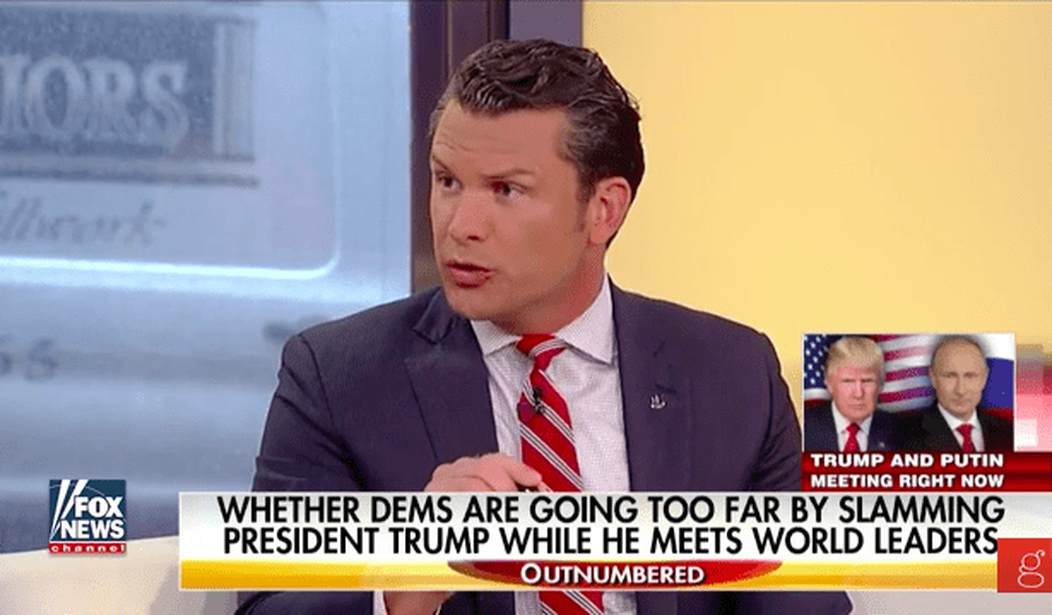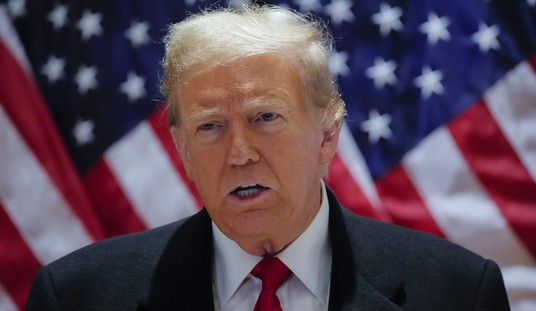The LGBT movement continues to grow more hostile to the religious freedom of Christians (and soon afterward those of other faiths), who do not accept transgender identity and who do not wish to celebrate same-sex weddings.
One activist group announced plans to force churches to host same-sex weddings. LGBT people in Australia wouldn’t even allow churches to opt out, if doing so made same-sex marriage legal in that country. The speaker of the House of Commons in Britain said same-sex marriage won’t be “proper” until churches can’t opt out. A prominent LGBT activist has declared his intentions to “punish the wicked,” by which he means anyone who refuses to take part in celebrating a same-sex wedding. The Southern Poverty Law Center (SPLC) has listed Christian organizations as “hate groups” along with the Ku Klux Klan. Just this month, an LGBT activist threatened to burn down a church over a billboard defending traditional marriage.
Why all this vitriol? Why are people comfortable with bakers like Aaron and Melissa Klein being fined their entire life savings and forced out of business because they refused to bake a cake for a same-sex wedding?
Two possible explanations help clarify this vitriol. First, and most straightforward, is the religious makeup of the LGBT community. According to a survey this month from the Public Religion Research Institute (PRRI), a whopping 46 percent — nearly half — of LGBT Americans are religiously unaffiliated. This is roughly twice the number of Americans overall (24 percent) who do not identify themselves with any particular faith.
No other faith group has even just 10 percent of the LGBT community. Eight percent identify as white mainline Protestant, while six percent each identify as white evangelical Protestant, white Catholic, black Protestant, and other Christian.
Young LGBT Americans also tend to be even less religious (56 percent identify as unaffiliated). Interestingly, Buddhists and Unitarian-Universalists have a much higher proportion of LGBT members than other religious traditions, with 14 percent of each faith identifying as LGBT.
The LGBT community, especially the younger and more active sections, are less likely to be religious, and less likely to have close friends who are religious. This means that when considering religious freedom, they would think of believers as “the other.”
Secondly, the LGBT community may be welcoming for many, but a harrowing essay from Michael Hobbes that ran in The Huffington Post this March highlighted the dysfunctions in that community — struggles that might predispose gay people to fear and distrust members of their own community, and even more so anyone outside it.
Hobbes’ article addressed “The Epidemic of Gay Loneliness,” and it was revealing, especially from a Christian perspective. While Christians view homosexual activity and the gay lifestyle as wrong, the Bible clearly teaches them to also have a heart for the struggles and pain people experience as a result of sin. Hobbes revealed that certain destructive worldly temptations can become supercharged in the gay community, making people doubt their worth and despair.
“Marriage equality and the changes in legal status were an improvement for some gay men,” Christopher Stults, a researcher at New York University, told Hobbes. “But for a lot of other people, it was a letdown. Like, we have this legal status, and yet there’s still something unfulfilled.”
That emotional longing for fulfillment is elusive to men and women in general, and Hobbes explained why gay men feel it rather intensely. He noted that even in the Netherlands, where gay marriage has been legal since 2001, “gay men remain three times more likely to suffer from a mood disorder than straight men, and 10 times more likely to engage in ‘suicidal self-harm.’ In Sweden … men married to men have triple the suicide rate of men married to women.”
Christians should not just respond to these tragic numbers by dismissing gay men as engaging in unnatural actions. These struggles of mental health are real, and Hobbes painfully explained the cultural factors contributing to them.
One of the most fascinating aspects Hobbes presented was the fact that the mental health disparity between gay men and straight men cannot just be explained by societal rejection. “The problem wasn’t just suicide, it wasn’t just afflicting teenagers and it wasn’t just happening in areas stained by homophobia,” he wrote. Research “found that gay men everywhere, at every age, have higher rates of cardiovascular disease, cancer, incontinence, erectile dysfunction, allergies and asthma — you name it, we got it.”
A 2014 study found that gay teenagers didn’t have a greater number of “stressful life events,” but the ones they did experience inflicted more harm on their nervous systems. Hobbes suggested that minority stress — the state of always being on the defensive, fearful of judgement from society — can stunt emotional growth among LGBT people.
Yet the gay community can also damage men’s mental health. “While the first round of damage happens before we come out of the closet, the second, and maybe more severe, comes afterward,” the gay man wrote.
Hobbes told the story of Adam, a gay man who “came out” at age 16 and moved to San Francisco. “The feeling of distance from other people didn’t go away. So he treated it, he says, ‘with lots and lots of sex. It’s our most accessible resource in the gay community. You convince yourself that if you’re having sex with someone, you’re having an intimate moment. That ended up being a crutch.'”
Interestingly, joining the gay community is not in itself a cure for stress among gay people. A 2015 study showed that rates of anxiety and depression were actually higher in men who had recently come out than in men who were still closeted.
“It’s like you emerge from the closet expecting to be this butterfly and the gay community just slaps the idealism out of you,” Adam told Hobbes. He described the gay community of West Hollywood as “really horrifying.” In his experience, “You go from your mom’s house to a gay club where a lot of people are on drugs and it’s like, this is my community? It’s like the f*cking jungle.”
Many gay men have been “re-traumatized,” Hobbes wrote.
“All of a sudden it’s not your gayness that gets you rejected. It’s your weight, or your income, or your race,” the gay man confided. At this point, Hobbes’ story became heartbreaking.
“Every gay man I know carries around a mental portfolio of all the sh*tty things other gay men have said and done to him,” the Huffpost writer explained. “I arrived to a date once and the guy immediately stood up, said I was shorter than I looked in my pictures, and left. Alex, a fitness instructor in Seattle, was told by a guy on his swim team, ‘I’ll ignore your face if you f*ck me without a condom.’ Martin, a Brit living in Portland, has gained maybe 10 pounds since he moved there and got a Grindr message—on Christmas Day—that said: ‘You used to be so sexy. It’s a shame you messed it up.'”
This kind of rejection wounds the heart, no matter one’s sexual orientation. Hobbes explained that “in-group discrimination” actually damages a person’s psyche more than getting rejected by people outside their identity group.
According to Hobbes, there is a pervasive stigma against feminine guys in the gay community. A two-year longitudinal study found that the longer a gay man is out of the closet, the more likely he will become a “top,” the more masculine partner. “These masculinity norms exert a toll on everyone, even their perpetrators. Feminine gay men are at higher risk of suicide, loneliness and mental illness. Masculine gay men, for their part, are more anxious, have more risky sex and use drugs and tobacco with greater frequency.”
Another negative impact on the lives of gay men has been the proliferation of hookup apps like Grindr and Scruff, which 70 percent of gay men use to meet each other. Hobbes wrote that the apps “are almost perfectly designed to underline our negative beliefs about ourselves.” A study of gay men in 2015 found that “90 percent said they wanted a partner who was toll, young, white, muscular and masculine.”
“For the vast majority of us who barely meet one of those criteria, much less all five, the hookup apps merely provide an efficient way to feel ugly,” Hobbes confided.
These apps also limit gay friendships, the writer explained. In previous years, gay people had to meet at a physical location, and gay bars and clubs became places of community. Now, isolated men can find other isolated men and use one another for sex.
Hobbes’ article was heartbreaking and illuminating, from a Christian perspective. It seems that the gay community can make LGBT people particularly vulnerable to doubting their own self-worth, and becoming enslaved to the worldly focus on sexual desirability. Gay men can be tempted to see themselves as objects to be desired, and when they age and lose their desirable qualities, they see themselves as worthless.
(Note: These struggles are not unique to gay men, and neither is the temptation to put self-worth in sex and to become addicted to sex, thinking of it as a simple solution to the human need for intimacy.)
This kind of culture (or anti-culture, perhaps) can help explain the deep-seated fear and distrust many LGBT people have toward anyone who champions traditional sexual morality. When a gay person hears that marriage should be between a man and a woman, he hears rejection and judgment, and that may be compounded by experiences of judgment and rejection from his own community.
This is no justification for attacks on religious freedom — far from it. Bakers like Aaron and Melissa Klein should have the right to refuse to bake for a same-sex wedding: the free speech to refuse to endorse an event, the free association to refuse to associate with it, and the religious freedom to live by their own conscience.
Even so, it is important to understand that the LGBT distrust and fear toward conservatives does not emerge in a vacuum, and perhaps the strongest argument Christians can give for religious freedom is an act of love and charity toward LGBT people. If gay men are struggling with this kind of rejection and indeed dehumanization from their own people, they need compassion desperately.
When Jesus dined with sinners and blessed them, He did not pretend they were not sinners. He told them to repent — but He also treated them with love and dignity, unlike the judgmental religious leaders of the day.
All people need this acceptance, but Hobbes’ harrowing story suggests that gay people need it especially. If Christians can find the heart of Jesus for these suffering people and find a way to reach out to them in love, perhaps the LGBT community will lose some of its anger against religious freedom.








Join the conversation as a VIP Member